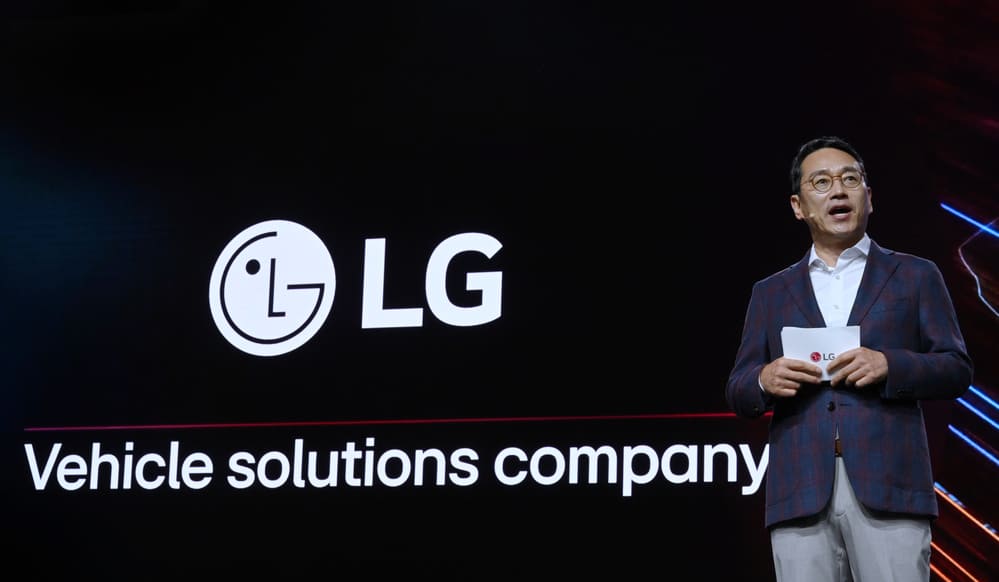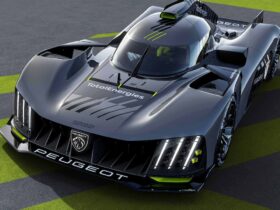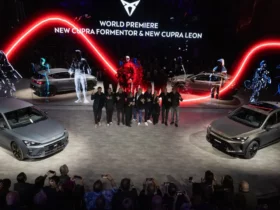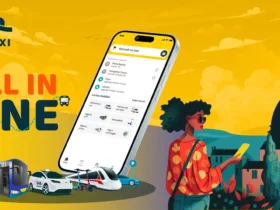LG Electronics held his first press conference yesterday on the occasion of the IAA MOBILITY in Monaco, one of the largest events in the world in the mobility sector. Speaking on the main stage at Messe München, LG CEO William Cho spoke about the company’s vision for future of mobilitywhich aims to lead the industry towards important changes by bringing LG’s vision to the road, “Life’s Good”.
LG, the mobility of the future based on the smart life solution company
This direction was announced last July, when CEO Cho announced the company’s strategy to transform into one “smart life solution company” with the aim of improving and expanding the experiences it offers to people. This goal will also be achieved through revolutionary innovations such as ThinQ UP 2.0, the artificial intelligence platform that creates interconnection between household appliances.
The automotive sector is rapidly moving towards electrification and autonomous driving and, in this context, LG has the incredible opportunity to create value for people by making the car no longer a simple means of transport but a space where they can enjoy experiences .
LG, the mobility of the future in the growth of Vehicle Component Solutions
The customer orientation underlying the development of the products and services that LG offers has led to the rapid growth of LG Vehicle Component Solutions (VS), a division in which LG has invested heavily over the last ten years and which has grown significantly in the automotive components and solutions market.
According to the company market research Strategy AnalyticsIn fact, LG achieved the largest share of the global telematics market last year, equal to 23,3%. Also, as of 2021, LG holds a double-digit share in the audio, video and navigation (AVN) segment. These results are the result of the trust that the main car manufacturers have placed in the company’s products and services.
Alpha-able: The customer-centric future mobility experience based on autonomous driving
LG created a replica of the interior of a vehicle a autonomous driving to find out what people think. The experiment revealed that most people perceive this type of vehicle as one exclusive and private space which offers the freedom to dedicate oneself to one’s own activities such as playing, working and spending time dedicated to oneself.
Some surveys show that drivers today have similar opinions about their vehicles and the time they spend in them, with 72% agreeing that traveling by car is primarily a time to relax and 43% calling the interior a valuable personal space.
Based on the feedback obtained, LG has redefined the car as a “personalized digital cave”, i.e. a personal space that can be transformed (Transformable), what can be explored (Explorable) and where to get it relax (Relaxable). These directions, defined Alpha-ablesummarize the company’s approach to mobility.

Transformable: an environment that adapts to people’s needs
According to LG, the space inside a vehicle should be able to transform, adapting to different situations or purposes, becoming a restaurant to dine in, an office to work in or even a cinema on four wheels. To offer new experiences, the interior space of the vehicle will become more adaptable, capable of offering unique moments that meet and exceed passengers’ expectations.
This concept will come to life through LG’s innovative display solutions with various form factors that include transparent, flexible and rollable displays, and through the unrivaled technologies that LG employs in its home appliances.
Explorable: a space that can be reinvented
LG believes that cars of the future should be able to understand the specificity of each journey taking into account the destination, travel duration and other variables in order to offer personalized recommendations to travel in an increasingly smart way. Using a combination of advanced artificial intelligence (AI) e tecnologia eXtended Reality (XR), LG is confident that it can achieve a true transformation of the travel experience.
Thanks to augmented reality (AR) and the windshield that integrates the transparent LG OLED display, for example, passengers will be able to transform the look of the vehicle’s interior by reproducing images of destination cities or other virtual landscapes.
Charging solutions for electric vehicles as an essential element for future mobility
The business of charging systems for electric vehicles represents a fundamental asset for consolidating LG’s future mobility ecosystem. Last year LG acquired HiEV Charger, a company that develops charging technologies for electric vehicles. This acquisition will create a strong synergy with the battery business within the LG Group, which is expected to grow rapidly.
To meet the growing demand and respond to the demands and needs of users, HiEV Charger has introduced four types of electric vehicle chargers which, thanks to the LED display and touch controls, are extremely simple and convenient to use. The new battery chargers also have features that make them safer such as resistance to water and dust and electrical and thermal protection during the charging process; they are also extremely simple to manage thanks to connector block detection and remote updates.
















Leave a Reply
View Comments